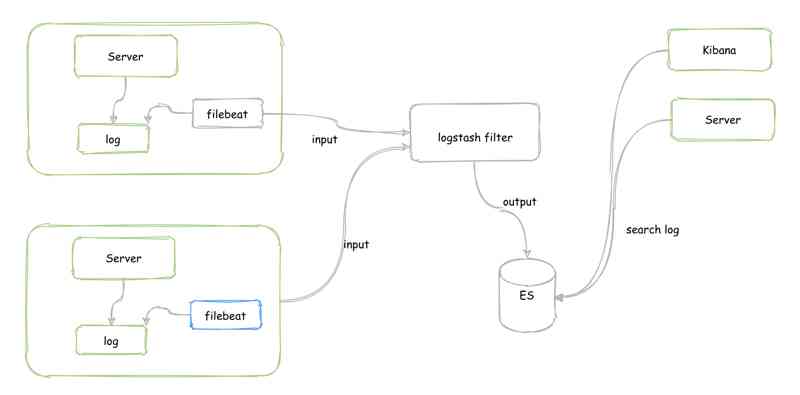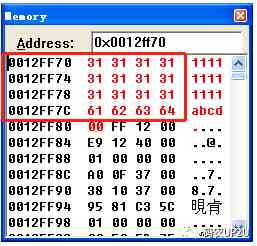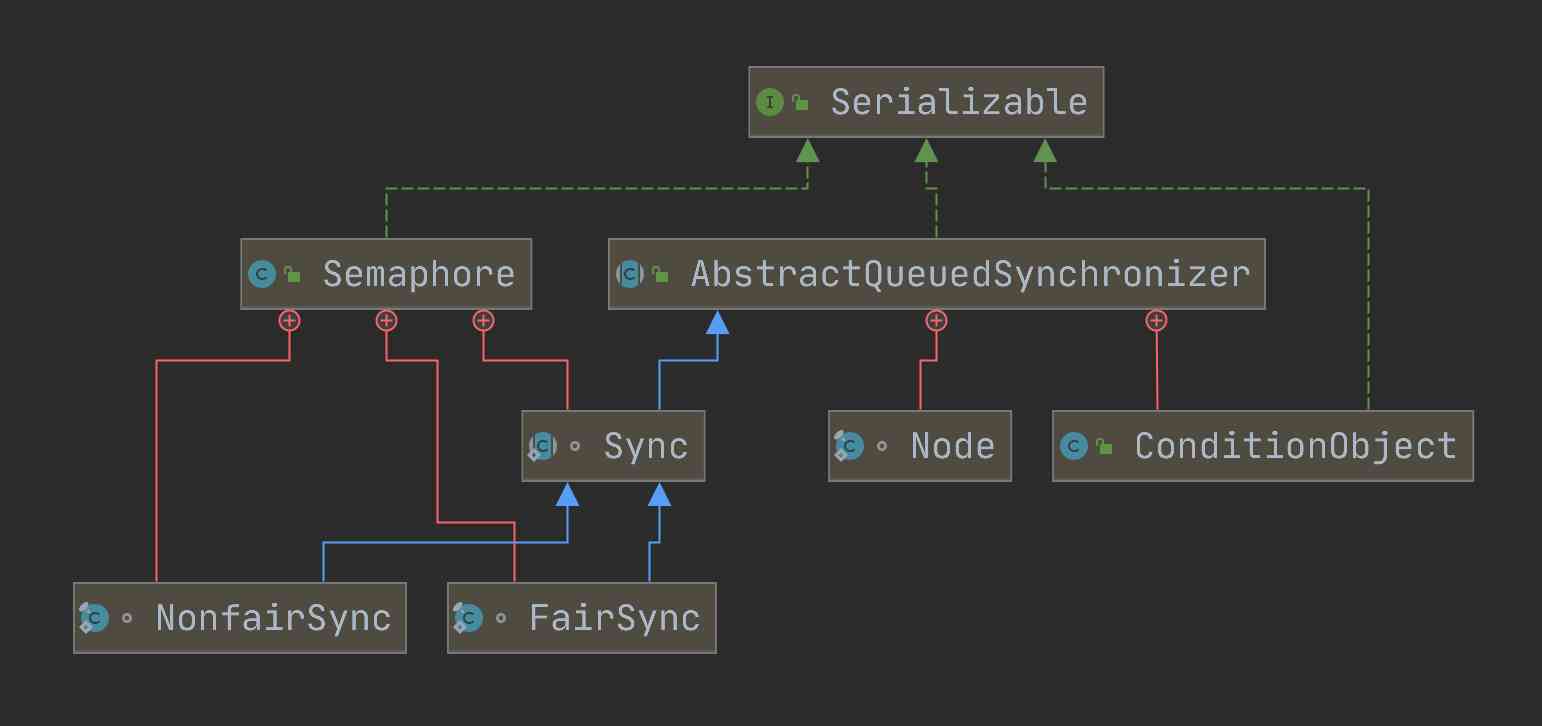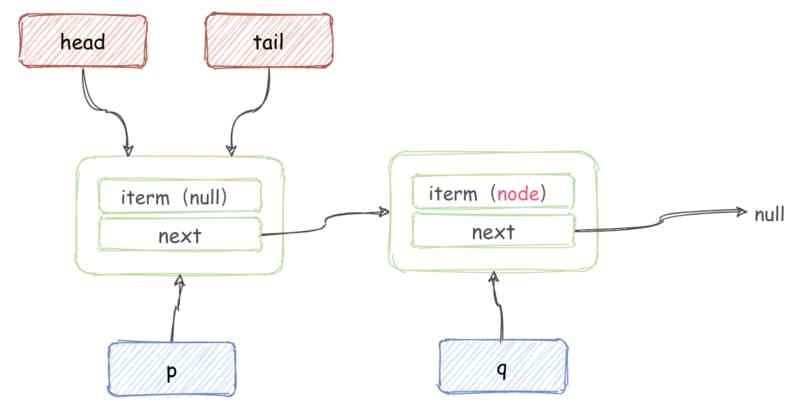PrefaceIt's too much trouble checking logs for new projects , Check between multiple machines , I don't know if it's the same request . Use when printing the log MDC Add a traceId, So this one traceId How to transfer across systems ?
official account :『 Liu Zhihang 』, Record the skills in work study 、 Development and source notes ; From time to time to share some of the life experience . You are welcome to guide !
background
It's also a note on new project development , Because it's a distributed architecture , It involves the interaction between systems

At this time, there will be a very common problem :
- A single system is a cluster deployment , Logs are distributed across multiple servers ;
- Multiple system logs on multiple machines , But a request , It's even more difficult to check the log .

Solution
- Use SkyWalking traceid Link tracking ;
- Use Elastic APM Of trace.id Link tracking ;
- Make your own traceId and put To MDC Inside .
MDC
MDC(Mapped Diagnostic Context) It's a mapping , Used to store context data for a specific thread running context . therefore , If you use log4j Logging , Each thread can have its own MDC, The MDC Global to the entire thread . Any code belonging to the thread can easily access the thread's MDC Exists in .
How to use MDC
- stay log4j2-spring.xml Add... To the log format of
%X{traceId}To configure .
<Property name="LOG_PATTERN">
[%d{yyyy-MM-dd HH:mm:ss.SSS}]-[%t]-[%X{traceId}]-[%-5level]-[%c{36}:%L]-[%m]%n
</Property>
<Property name="LOG_PATTERN_ERROR">
[%d{yyyy-MM-dd HH:mm:ss.SSS}]-[%t]-[%X{traceId}]-[%-5level]-[%l:%M]-[%m]%n
</Property>
<!-- Omit -->
<!-- Configuration of the output console -->
<Console name="Console" target="SYSTEM_OUT" follow="true">
<!-- Format of output log -->
<PatternLayout charset="UTF-8" pattern="${LOG_PATTERN}"/>
</Console>- New interceptors
Intercept all requests , from header In order to get traceId Then put MDC in , If not , Directly UUID Generate a .
@Slf4j
@Component
public class LogInterceptor implements HandlerInterceptor {
private static final String TRACE_ID = "traceId";
@Override
public void afterCompletion(HttpServletRequest request, HttpServletResponse response, Object handler, Exception arg3) throws Exception {
}
@Override
public void postHandle(HttpServletRequest request, HttpServletResponse response, Object handler, ModelAndView arg3) throws Exception {
}
@Override
public boolean preHandle(HttpServletRequest request, HttpServletResponse response, Object handler) throws Exception {
String traceId = request.getHeader(TRACE_ID);
if (StringUtils.isEmpty(traceId)) {
MDC.put(TRACE_ID, UUID.randomUUID().toString());
} else {
MDC.put(TRACE_ID, traceId);
}
return true;
}
}- Configure interceptors
@Configuration
public class WebConfig implements WebMvcConfigurer {
@Resource
private LogInterceptor logInterceptor;
@Override
public void addInterceptors(InterceptorRegistry registry) {
registry.addInterceptor(logInterceptor)
.addPathPatterns("/**");
}
}How to transfer across Services traceId
- FeignClient
Because it's used here FeignClient Call between services , Just add a request interceptor
@Configuration
public class FeignInterceptor implements RequestInterceptor {
private static final String TRACE_ID = "traceId";
@Override
public void apply(RequestTemplate requestTemplate) {
requestTemplate.header(TRACE_ID, MDC.get(TRACE_ID));
}
}- Dubbo
If it is Dubbo You can extend Filter Way of transmission traceId
- To write filter
@Activate(group = {"provider", "consumer"})
public class TraceIdFilter implements Filter {
@Override
public Result invoke(Invoker<?> invoker, Invocation invocation) throws RpcException {
RpcContext rpcContext = RpcContext.getContext();
String traceId;
if (rpcContext.isConsumerSide()) {
traceId = MDC.get("traceId");
if (traceId == null) {
traceId = UUID.randomUUID().toString();
}
rpcContext.setAttachment("traceId", traceId);
}
if (rpcContext.isProviderSide()) {
traceId = rpcContext.getAttachment("traceId");
MDC.put("traceId", traceId);
}
return invoker.invoke(invocation);
}
}- Appoint filter
src
|-main
|-java
|-com
|-xxx
|-XxxFilter.java ( Realization Filter Interface )
|-resources
|-META-INF
|-dubbo
|-org.apache.dubbo.rpc.Filter ( Plain text file , The content is :xxx=com.xxx.XxxFilter)The screenshot is as follows :

The test results are as follows :

dubbo filter The source code address is at the end of the article
You can also pay attention to the official account , send out traceid obtain
The other way
Of course, if the partners use SkyWalking perhaps Elastic APM It can also be injected in the following ways :
- SkyWalking
<dependency>
<groupId>org.apache.skywalking</groupId>
<artifactId>apm-toolkit-log4j-2.x</artifactId>
<version>{project.release.version}</version>
</dependency And then [%traceId] Configure in log4j2.xml Of documents pattern Then you can
Elastic APM
- Specified at startup enable_log_correlation by true
- take
%X{trace.id}Configure in log4j2.xml Of documents pattern in
Expand
Unified log collection
Although there are traceId It can trace the whole link and query the log , But it's also on multiple servers after all , In order to improve the query efficiency , Consider putting the logs together .
The commonly used method is based on ELK The log system of :
- Use filebeat The collection log is submitted to logstash
- logstash For word segmentation, filtering, etc , Output to Elasticsearch
- Use Kinbana Or develop your own visualization tools from Elasticsearch Query log

Conclusion
This paper mainly records the problems encountered in the recent development process , I hope it will help my little friends . deficiencies , Welcome to correct . If you have other suggestions or opinions, please leave a message to discuss , Common progress .
Related information
- Log4j 2 API:https://logging.apache.org/lo...
- SkyWalking:https://github.com/apache/sky...
- Elastic APM:https://www.elastic.co/guide/...
- Dubbo filter:http://dubbo.apache.org/zh-cn...
- this paper Dubbo filter demo:https://github.com/liuzhihang...




